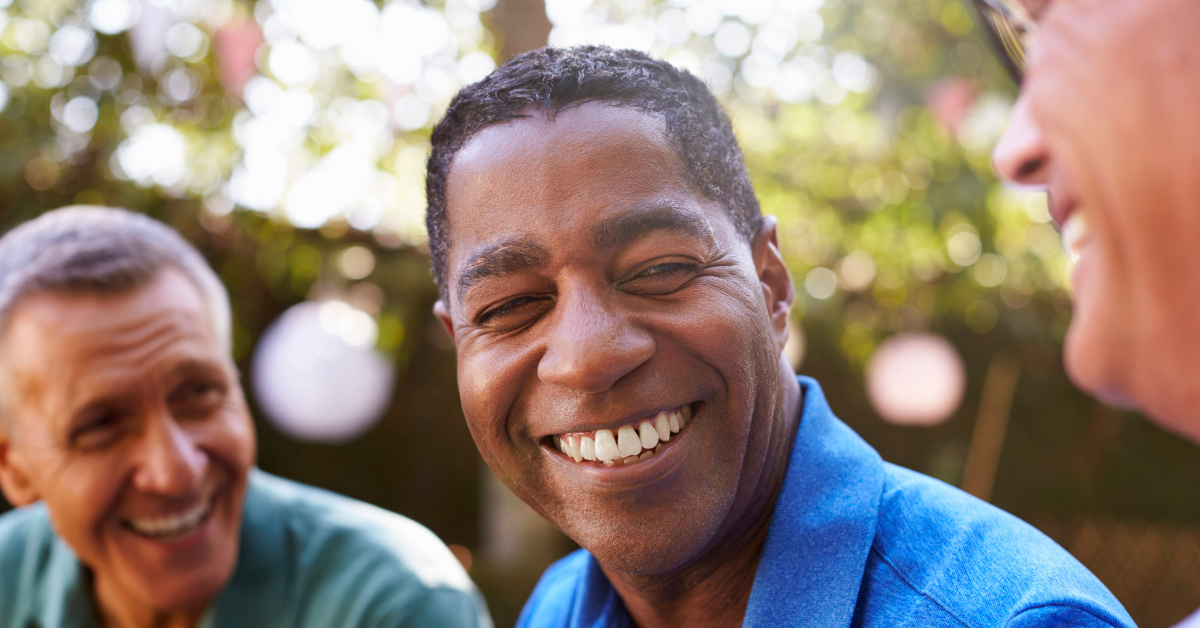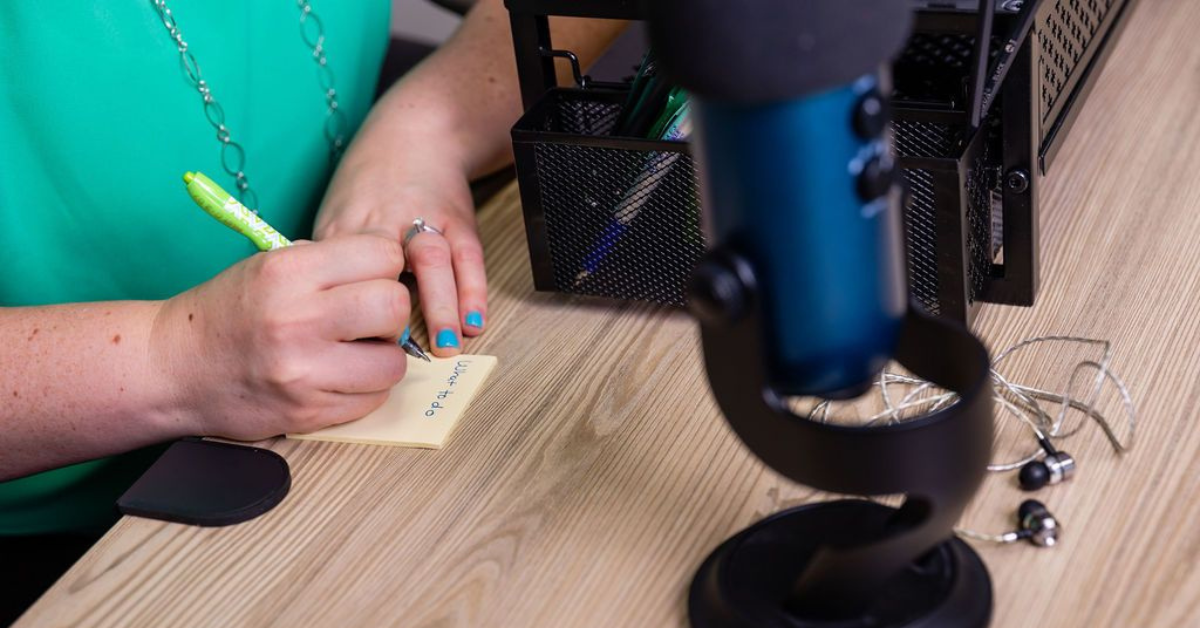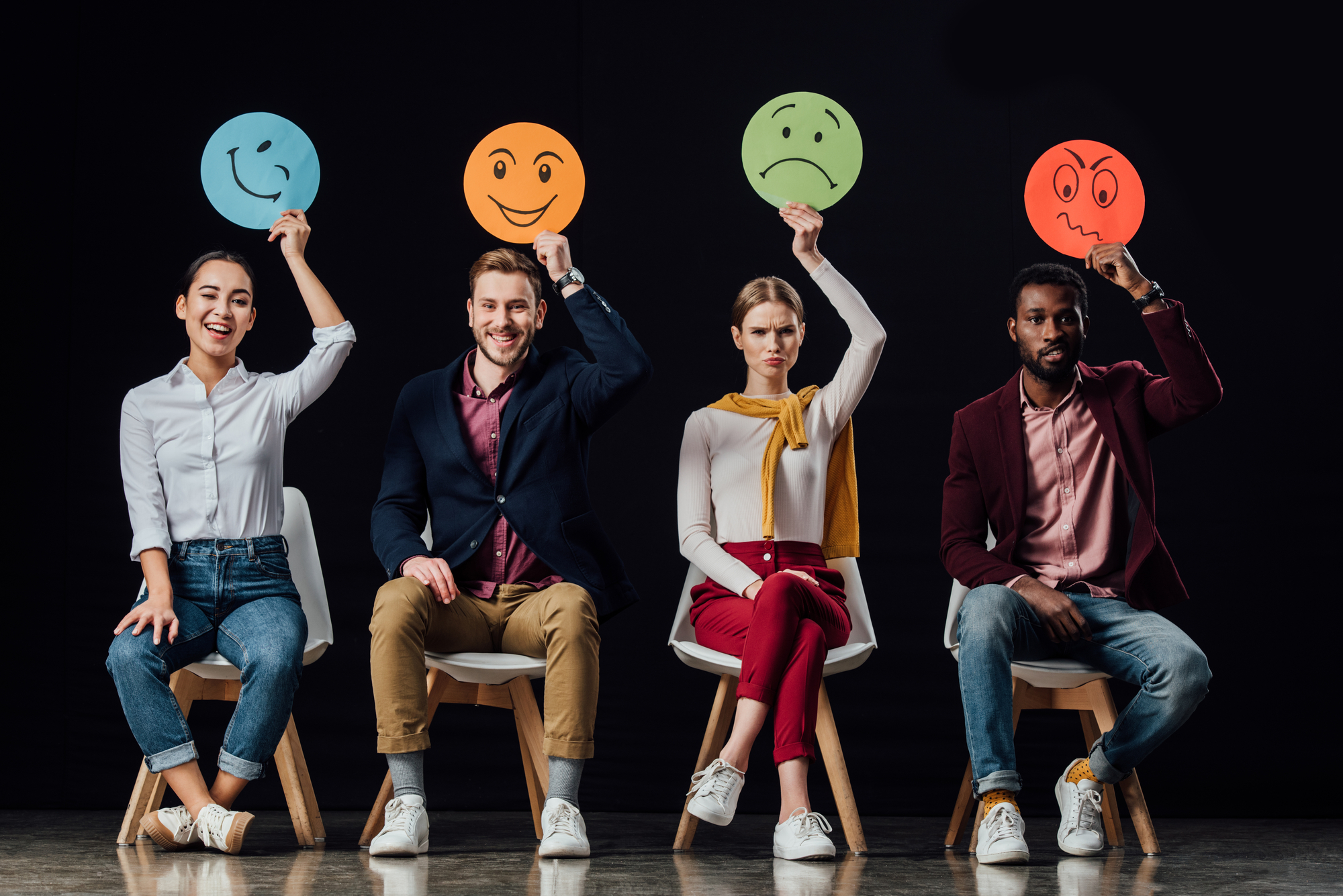129. Four Steps to Healing from Spiritual Abuse with Carrie Bock, LPC-MHSP
In this episode, Carrie explores the profound impact of spiritual abuse on mental and emotional health, outlining red flags and steps to healing.
Episode Highlights:
- What spiritual abuse is and how to recognize it.
- Common red flags of spiritual abuse in religious settings.
- The importance of identifying and addressing abusive elements.
- The value of surrounding yourself with solid biblical teaching.
- Strategies for re-engaging with a supportive Christian community.
Episode Summary:
In this episode of Hope for Anxiety and OCD, I discuss a four-step process to heal from spiritual abuse. I first explain what spiritual abuse is and the red flags to watch for, such as the misuse of scripture or church authority for control, promotion of non-biblical theology, or using a position of power for personal gain. Healing from spiritual abuse takes time, especially if the abuse was prolonged or part of a rigid religious system.
The four steps to healing include:
- Identify Abusive Elements and Seek Trauma Therapy: Recognize the parts of your experience that were abusive and seek professional help if you’re struggling to move past them.
- Commit to Solo Time with God: Spend time with God to understand His true character, separate from the distorted teachings you may have encountered.
- Surround Yourself with Sound Biblical Teaching: Ensure the teaching you receive aligns with scripture and helps you build a healthy spiritual foundation.
- Re-engage with Christian Community: Once you feel ready, reconnect with a Christian community that embodies Christ’s love and provides healthy relationships.
Healing from spiritual abuse is a journey that requires time, reflection, and the support of both God and a loving community. If you’re dealing with the effects of spiritual abuse, remember that God’s love for you is unwavering, and it’s possible to find hope and healing.
If this episode resonates with you, I encourage you to reach out and explore intensive therapy options. For more information, visit my counseling website at bythewellcounseling.com or learn more about the podcast at hopeforanxietyandocd.com.
Thank you for joining me today. Until next time, may you be comforted by God’s great love for you.
Explore related episode:
Transcript:
Hi, welcome to Hope for Anxiety and OCD episode 129. I’m your host, Carrie Bock, a licensed professional counselor in Tennessee. I wanted to share with you today a four-step process that I came up with on recovering from spiritual abuse. Before we get into that, I’m going to walk you through what is spiritual abuse. What does that mean? What are some red flags? If you think you might have experienced spiritual abuse, then we’ll go through the four-step process. My husband and I also did an episode called When Ministry Becomes Toxic in episode 92. If you want to go back and listen to that one as well, it may be relevant to you.
I want you to know that I am excited and looking ahead to the fall to get some ICBT groups together. This is inference-based cognitive behavioral therapy. You have an impact on what these groups will look like, whether you are wanting more interaction among each other in practicing the skills or whether or not you want to come learn about it and then have a self-help application to your life. Please take our very short survey on ICBT. If you’re an insider on our email list, you have already received the survey. Please go in and take it. If for some reason you’re not on our email list and haven’t received the survey, you can definitely reach out to us through the website at hopeforanxietyandocd.com
Let’s talk about what is spiritual abuse. Spiritual abuse is when someone uses the Bible or non biblical theology or their position in the church as a pastor, mentor, leader to control you in some way. Some red flags would be they’re promoting non-biblical theology. For example, “God heals everyone who comes to Him for healing. If you’re not healed, it’s due to a lack of faith.”
If you look in the beginning of Luke, Jesus actually walked away from people that were coming to the house for healing because he went away to spend time with the Lord. That may be the beginning of Mark. Jesus was in a house and he had slipped away. People were looking for him. Even when Jesus was on the earth, that was healing was not his number one ministry. He was leading people to the Father. That was his main point of view, but there are some teachers out there that say, “God heals everyone and if you’re not healed, therefore it must be a lack of faith.” That’s not what we see in the Bible. We also see that Paul had a thorn in the flesh. He was an incredible man of God and God did not fully heal him. God told him, my grace is sufficient for you. That would be one example.
Another example that we see a lot of times in church is “God wants to bless you. That blessings means God wants to give you financial wealth and make you a great person. If you have faith or if you give to this ministry.” A lot of times that’s not what it is. Unfortunately, people looking for money, If you give to this ministry, then God is going to just bless you and make you super wealthy. That is not what we see in scripture. Once again, going back to Paul, Paul was preaching the gospel and there were churches that donated to him, but he also made tents for a living. I don’t know if you knew that. That is in scripture as well. Jesus said, I don’t even have a house to lay my head. There were some wealthy people in the Bible. Don’t get me wrong. You look at Abraham, had quite a bit of wealth, which back then was in terms of flocks. Solomon had a lot of wealth. So there were wealthy people in the Bible, but there were also some people that weren’t wealthy and they were just had given up a lot in the service and ministry of the gospel.
Just because you’re a Christian doesn’t mean that God is going to bless you financially. I do believe that if you’re following God, God will bless you, but that’s not always in dollars and cents. Sometimes that’s a relationship blessing. Sometimes that’s a joy that you’ve received from the Lord. I believe, that God does bless his children, just like we want to bless our children as earthly parents. That’s not always a financial or a material blessing, and that should not be our main focus of what we’re trying to receive from God.
Another red flag would be using a position of power or influence to gratify their own sexual needs. Sexual abuse does exist in the church. Let’s not try to pretend like it doesn’t. I wish that it didn’t. Not all abuse involves touching. Maybe inappropriate comments that are sexual or flirtatious comments that shouldn’t be going on with between two people who are married, or it may be inappropriate flirtatious comments going on when you know clearly that other person is married or they clearly know that you’re married. It may be like exposing themselves in some sort of way or exposing you to sexual material or pictures. Know that not all sexual abuse. involves actual physical contact.
I think this next red flag kind of goes along with that one. Someone may lead you to do something that you know in your spirit or you know based on scripture is wrong, but they may use some type of spiritual justification for it, saying God wants us to be together. This is God’s will for your life, that you do this, and you know in your spirit they’re asking you to do something wrong, like have an affair or have an inappropriate relationship with them.
Another red flag, they’re the only ones that you can get spiritual answers from. No, I know that in the early church, there was a church who would listen to what the disciples were saying, and then they would go back and they would search the scriptures for themselves. That’s something that we all should be doing, even if your pastor is using scripture. Examine it for yourselves. The Holy Spirit interprets the Word of God. Some of you may say, “Well, I read the Bible, but I don’t fully understand everything that it says.” Okay. Welcome to the club. I think it’s a difficult book for a reason. God wants us to wrestle with it, not to be completely mysterious, but that we have to seek him in that process of reading the Bible and receiving that interpretation of the word by the Holy Spirit. You don’t need a pastor to tell you exactly what it says. Some things in scripture are just very clear and very black and white.
Some things are a little bit more gray where we have to wrestle with it a little more and people may come to different theological conclusions. But some things are very, very clear. If someone is telling you, “Well, you need to run that decision by me,” and you’re kind of like, “Why would I need to do that?” That’s creating an unhealthy level of dependence on for you to, they’re wanting you to depend on them or feel like, You can’t think or make decisions for yourself. That’s not a position that you want to be in.
Last red flag that I came up with is an important one. It happens, unfortunately, a lot in families where people withdraw love if you do something that they don’t agree with. I’m not talking about something that’s morally wrong, but you make a decision. Or set a boundary in such a way where they’re not in agreement with what you’re doing. It could be something completely that you feel like God has called you to do or wants you to do and your family is kind of giving you the cold shoulder.
You’re the one that’s not invited to the family dinner and there’s a sense of withdrawing love. It’s kind of like Well, we really don’t approve of you, and so therefore we can’t love you. Those things are not mutually exclusive, right? Because as Christians, we should be loving people that we don’t agree with.
Newsflash, hold the phone if you haven’t heard that before. We are supposed to love our enemies. We can love people that we disagree with, or that are doing things that we know are blatantly wrong. We can still love that person and say, Hey, I love you, but your behavior is really off course right now, or I love you, but I’m really concerned about you.
You’re headed down a dead-end street here, and if you don’t turn around, then I’m afraid for your safety or your health. Those are healthy conversations, not withdrawing love because someone is doing something that we don’t approve of.
Let’s get into the process of healing. Yeah. Now, healing takes time, especially if the spiritual abuse was ongoing. Maybe you were a part of a cult or very rigid religious system. Maybe you were a part of that for a long time, like years. It’s going to take you time to heal from that. That’s just makes sense, right? You’re not going to be able to unravel all of that overnight. Give yourself the time and space that you need to heal.
I think the number one step that I put down was identify the pieces that were abusive and seek trauma therapy if needed. What I’ve seen with my clients is that so many people are suffering in this world. From bad theology. Yes, I’m going to use the word bad because it’s not biblical believing that we have to be perfect in order for God to love us. That’s completely antithesis to the gospel, but that’s how some treat other people, believing that God is angry with you. If you have one sin or one small mistake, you are God’s child. That’s something that is important to keep in mind. There’s always this balance that we have, obviously, between sin and grace. I’m not talking about that. I’m talking about situations that are extreme. Identifying the pieces that were abusive in that maybe church context or in that relationship context and seeking professional help if you keep running against a wall or you feel like you’re not able to get to a healthy spiritual place that you want to be or you’re not able to get to a healthy relationship place with others.
You don’t feel like you can be vulnerable in your relationships. You don’t feel like you can be safe to be vulnerable with God. Maybe you’re having a lot of flashbacks back to that time or intrusive memories where you feel like you’re just constantly ruminating or thinking about various things that have happened to you.
Those are all flags that you need to get a professional to help walk you through that journey. If you are seeking to like to rebuild and re-engage with a healthy faith situation and relationship with God, it just makes sense to have a balanced, healthy Christian therapist who can walk you through that.
Even though that may be challenging if you feel like you were hurt or abused by the church, what is it going to look like? Or what is this therapist going to be like with me? I will say that I’ve seen people do incredible trauma work surrounding hurts that they experienced in the church so I know that people can heal from that.
I know that EMDR has been an amazing tool for some of those individuals to allow their nervous system to clear that out. So that something goes from, hey, it’s in the short-term memory and feels like it’s happening right now to it’s in long term storage. I don’t have to worry about that right now.
The other thing I put on here is to commit time. Step two, commit solo time with God to get to know Him personally. In the Bible, it talks with us about seek the Lord and that if you seek the Lord with all your heart, you’re going to find him. God is not going to just remain mysterious and hidden from you. If you are openly saying, “Okay, God, I want to know your true character. Maybe these are things that I’ve been taught in a very unhealthy situation. Maybe scriptures were twisted. It was kind of use the scripture, but they also There was some truth and there was some not truth mixed in there. Getting to know God on a personal level. “Who are you really?” This is so important. This should be a question we’re all asking in a lifetime process. Who are you, God? I want to know you more today than I did before.
As you really seek the Lord, soaking in the scriptures, literally reading the Psalms, seeing the depth of the emotion that people experienced with God, and knowing that that’s a welcome and safe place, God Is a safe being to connect with, because even though he is incredibly holy and incredibly above us and distant, there is also a scripture that tells us that God wants to have an intimate relationship with us to have a closeness to have a friendship with us.
That’s all because of Jesus, not because of anything we’ve done. I don’t deserve that at all. You don’t deserve that. God allows us to have that opportunity to seek Him, to know Him in a personal, intimate way.
Third step, surround yourself with solid biblical teaching, really examining, and for all of these, you have to be in the Word.
You’re not going to know God if you’re not reading the Word. You’re not going to be able to be surrounded and know that you’re surrounded by sound biblical teaching if you’re not comparing it with what God’s Word is saying to you. I think it’s an important reparative experience for you to Have a positive experience with the church.
I know a lot of people have given up on church. They’ve walked away. They’re like, “I’m not doing that anymore,” but I’ve also met some other people who have said, “I’ve had some really painful church experiences, but I’ve gone somewhere else now and God has restored my belief in the church and the importance of that.”
There’s a verse that God, like, is bringing to mind where it talks about, I will restore the years that locusts have eaten. There was this locust plague, basically, and that was God’s promise. “I’m going to restore that.” Even though it takes time for things to grow back, it takes time for fields to recover. God promises us restoration and redemption if we’re seeking him.
As you’re surrounding yourself with sound biblical teaching, when you feel ready, step four is re engaging with the Christian community. I believe that the love of Christ is so powerful, and one of the amazing gifts is that we get to receive that love from other believers and other Christians, it’s just a small picture, a small portrait of how much God incredibly loves us.
It says that we will be known, Christians will be known by our love for other people. Unfortunately, a lot of times that’s not what we’re known for in today’s world, but that is what the scripture tells us, that people will know us by our love for One another. When they see you reaching out to someone who you know is having a hard time or bringing them a meal when they’ve had a child or bringing them a meal and leaving it on the doorstep when someone’s sick, that is a powerful witness and testimony.
We like to believe that we can all survive on our own. We’ll be fine. Everything’s good over here. The reality is, is that we need each other. We need relationships. We need people who can tell us, “Hey, you’re walking sideways there.” We need people to encourage us. We need people to speak truth into our lives. We need people to just have a taco with every once in a while. You know what I mean? Or have a slice of pizza or go out and eat a plate of vegetables, if you’re a vegetarian, whatever is your flavor.
We need people in our lives. God has wired us that way. He didn’t wire us to just be in relationship with Him. He wired us to be in relationship with each other and within community and so many people are missing out on that, and that’s such a hard piece. I know sometimes people feel like, “I’m too busy for that, or I have too much going on, or I’m working too many hours.” You will feel that void, you will feel that sense of loneliness and loss when you’re not connected in the community.
We saw this huge with COVID-19. There have been studies, Cigna did a major study on loneliness. found out it was a major killer of people worse than heart, heart issues and chronic conditions were people that just didn’t have a lot of interactions with others. They tended to die earlier. Amazing, absolutely kind of mind-blowing when you think about how much the interaction between our physical health and our mental health is and that sense of interconnectedness within community.
If you’ve been through spiritual abuse, I want you to know that God loves you. That if you’ve had a bad experience with the church, that those were people who were sinning, don’t put your view of God onto those people, because God is not other people. That is something that you have to remind yourself, or as you’re re-engaging with other Christians, “Okay, these are not the people that hurt me. I’ve been hurt by other people.” That is where I need to allow that to lie and taking the time to heal from the wounds, it allows you to experience forgiveness. I think that’s something that I didn’t list on here, but forgiveness is an important part of the healing process and allows us to be able to open up to other healthy people. to be able to receive love and to give love in the future.
If we remain angry, bitter and remain in unforgiveness, then we won’t be able to move forward and experience health for everyone out there, know that you are very much loved and cared about if you’re interested and you had one of these experiences and you say hey, I want to take some time aside to heal from that.
I do intensive therapies on Fridays in my practice. You can always check that out at bythewellcounseling. com. You can check out more on the podcast at hopeforanxietyandocd.com.
Thank you so much for listening.
Hope for Anxiety and OCD is a production of By the Well Counseling. Our show is hosted by me, Carrie Bock, a licensed professional counselor in Tennessee. Opinions given by our guests are their own and do not necessarily reflect the views The use of myself or By the Well Counseling our original music is by Brandon Mangrum. Until next time may you be comforted by god’s great love for you






